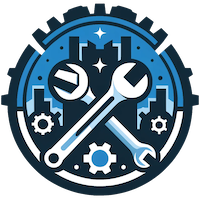Overview
GetSite’s Automation Features allow you to automate repetitive tasks and create custom workflows for your website projects. By connecting your GetSite account with popular automation platforms like Zapier, you can streamline processes, save time, and increase efficiency in your website management activities.Key Features
Workflow Automation
Create automated workflows to handle repetitive tasks:- Custom Triggers: Set specific events that initiate automated processes
- Conditional Logic: Create workflows that respond differently based on conditions
- Scheduled Actions: Automate tasks to run at specific times
- Multi-step Workflows: Chain together multiple actions in sequence
- Error Handling: Configure how the system responds to automation errors
Zapier Integration
Connect GetSite with thousands of other applications through Zapier:- Bi-directional Data Flow: Send and receive data between GetSite and other apps
- No-code Setup: Create integrations without programming knowledge
- Template Workflows: Start with pre-built automation templates
- Custom Zaps: Create your own unique automation sequences
- Testing Tools: Test your automations before deploying them
Form Automation
Automate actions triggered by form submissions:- Email Notifications: Send customized emails when forms are submitted
- Data Export: Automatically export form data to spreadsheets or CRMs
- Follow-up Actions: Trigger follow-up processes after form submissions
- Lead Assignment: Automatically assign leads to team members
- Confirmation Messages: Send customized confirmation messages to form submitters
Content Automation
Automate content-related tasks:- Content Updates: Schedule regular content updates
- Social Media Sharing: Automatically share new content on social platforms
- Content Approval Workflows: Streamline the content approval process
- Content Backups: Automatically back up your website content
- Analytics Reporting: Generate and distribute regular analytics reports
Usage Instructions
Setting Up Zapier Integration
Access Automations Dashboard
Navigate to
app.getsite.ai/automations.
Creating a Form Submission Workflow
Access Form Settings
From your Forms Dashboard, select a form and
go to its settings.
Set Trigger Conditions
Define specific conditions when the automation should trigger (e.g., only
for certain form fields).
Configure Actions
Select what should happen when the form is submitted (e.g., send email, add
to CRM).
Common Automation Workflows
Lead Generation Automation
Content Publishing Workflow
Best Practices
- Start Simple: Begin with basic automations before creating complex workflows
- Document Workflows: Keep track of all your automated processes
- Regular Testing: Periodically test automations to ensure they still work
- Monitor Performance: Track how automations are performing and adjust as needed
- Avoid Overlaps: Ensure different automations don’t conflict with each other
- Error Notifications: Set up alerts for when automations fail
- Review Regularly: Periodically review if automations are still necessary
Related Features
- Form Handling - Create forms that can trigger automations
- Website Creation - Build websites with automation capabilities
- AI Chat Assistance - Get help setting up automations
- Tools Suite - Access tools that can be part of automated workflows
